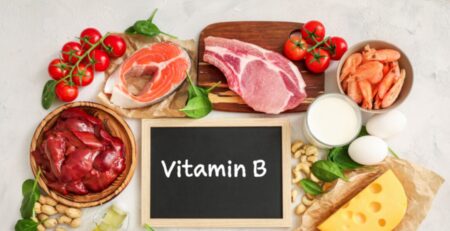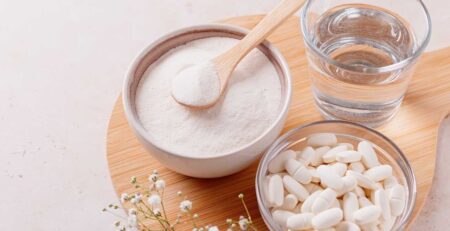Achieving Weight Loss With PCOS: Supplements, Diet, And Exercise Tips
Are you struggling with weight gain and other symptoms related to Polycystic Ovary Syndrome (PCOS)? You’re not alone! Many women with PCOS face challenges in losing weight and managing symptoms.
But the good news is that there are ways to achieve weight loss success with the help of supplements, diet, and exercise. This article will explore the most effective strategies for managing PCOS and achieving weight loss goals.
PCOS Weight Loss Supplements
Several supplements may be helpful for weight loss in women with Polycystic Ovary Syndrome (PCOS), including:
- Inositol: This carbohydrate has been shown to improve insulin sensitivity and promote ovulation in women with PCOS.
- Chromium: This mineral may help improve blood sugar control and reduce cravings for carbohydrates in women with PCOS.
- Omega-3 fatty acids: These healthy fats have been shown to improve insulin sensitivity and decrease inflammation, which may aid weight loss in women with PCOS.
- Fiber supplements: Soluble fiber supplements like glucomannan may help reduce feelings of hunger and promote weight loss.
Inositol supplementation for PCOS
Inositol effectively improves insulin sensitivity in women with Polycystic Ovary Syndrome (PCOS). Insulin resistance is a common feature of PCOS, and it can lead to increased weight gain and difficulty losing weight. By improving insulin sensitivity, inositol may decrease the risk of weight gain and promote weight loss in women with PCOS.
Research has also shown that inositol supplementation may improve ovulation in women with PCOS. Ovulation is often disrupted in women with PCOS, leading to difficulty getting pregnant. Inositol may help to restore ovulation and improve the chances of pregnancy in these women.
Inositol is often taken in the form of myo-inositol, which is one of the two forms of the supplement. Myo-inositol is the most studied form of inositol and is considered the most effective in treating PCOS. A typical dosage of myo-inositol is between 2-4 grams per day.
Chromium supplementation for PCOS
Chromium is beneficial for women with Polycystic Ovary Syndrome (PCOS) because it may help to improve insulin sensitivity and glucose metabolism.
Research has also shown that chromium supplementation may help to reduce cravings for carbohydrates in women with PCOS. Carbohydrate cravings can make it challenging to stick to a healthy diet and can contribute to weight gain. By reducing cravings, chromium may make it easier for women with PCOS to follow a healthy diet and lose weight.
The typical dosage of chromium is 200-1000 mcg per day. However, it is always best to consult a healthcare professional before starting any supplement regimen.
Omega-3 fatty acids supplementation for PCOS
Omega-3 fatty acids, also known as PUFAs, may positively affect Polycystic Ovary Syndrome (PCOS), a common hormonal disorder in women. These fatty acids may help to improve the health of women with PCOS by reducing several metabolic disorders such as insulin resistance, high levels of insulin in the blood, an imbalance of lipids in the blood, obesity, and inflammation.
Studies have shown that three sources of Omega-3 fatty acids, namely fish oil, flaxseed oil, and chia seed oil, have effectively improved lipid and hormonal profiles, reduced blood sugar levels, decreased weight gain, and reduced damage to the ovaries in women with PCOS.
Research has also found that getting enough omega-3 fatty acids from your diet, specifically the long-chain types EPA and DHA, may be associated with a lower risk of PCOS-related parameters such as body mass index (BMI), high levels of insulin and high levels of testosterone.
Additionally, Omega-3 fatty acids positively correlate with Follicle-stimulating hormone (FSH) and sex hormone-binding globulin (SHBG).
Fiber supplementation for PCOS
Eating a diet high in fiber may positively affect insulin sensitivity, a common issue for women with Polycystic Ovary Syndrome (PCOS). However, no research looks at how high fiber intake affects ovulation rates in women with PCOS.
On average, Americans consume less than 14 grams of fiber daily, less than the recommended 20 to 35 grams daily. Studies have shown that consuming 28-36 grams of fiber per day, which includes both types of fiber, soluble and insoluble, can improve insulin sensitivity and lower insulin levels in the blood.
A few studies suggest that taking fiber supplements for 6 months may improve ovulation in premenopausal women with PCOS, regardless of weight loss. However, more research is needed to confirm these findings.
How To Lose Weight With PCOS?
Of course, supplements help to lose weight with Polycystic Ovary Syndrome (PCOS), but the most effective approach is a combination of lifestyle changes and medication.
Diet
Eating a healthy, balanced diet low in refined carbohydrates, added sugars, and saturated fats can help you lose weight with PCOS. Focus on eating lean protein, fruits, vegetables, and whole grains.
Exercise
Regular exercise is essential for weight loss. Aim for at least 30 minutes of moderate-intensity exercise most days of the week.
Medications
Metformin, a medication commonly used to treat diabetes, can improve insulin resistance and help weight loss in women with PCOS. Your healthcare provider may also recommend other drugs to aid in weight loss.
Lifestyle changes
Improving sleep hygiene and managing stress can help with weight loss.
Professional help
A dietitian or nutritionist can help you create a healthy eating plan tailored to your needs and goals. A personal trainer can help you develop a safe and effective exercise plan.
PCOS Weight Loss Diet Plan

A diet plan for weight loss with Polycystic Ovary Syndrome (PCOS) should focus on nutrient-dense, whole foods that support blood sugar control and hormone balance. Here is an example of a 7-day PCOS weight loss diet plan:
Day 1
Breakfast: Scrambled eggs with spinach, mushrooms, and tomatoes
Lunch: Grilled chicken breast with quinoa and roasted vegetables
Dinner: Baked salmon with a side of sweet potato and green beans
Day 2
Breakfast: Greek yogurt with berries and a sprinkle of almonds
Lunch: Turkey and avocado wrap with a side of carrot sticks
Dinner: Baked chicken with a side of brown rice and steamed broccoli
Day 3
Breakfast: Oatmeal with a scoop of protein powder, a drizzle of honey, and a handful of berries
Lunch: Tuna salad sandwich with whole-grain bread, lettuce, and tomato
Dinner: Vegetable stir-fry with tofu and brown rice
Day 4
Breakfast: Smoothie bowl made with Greek yogurt, spinach, berries, and a scoop of protein powder
Lunch: Grilled shrimp with a side of cauliflower rice and roasted asparagus
Dinner: Turkey chili with a side of green salad
Day 5
Breakfast: Whole-grain toast with almond butter and banana slices
Lunch: Grilled chicken breast with a side of quinoa and roasted vegetables
Dinner: Baked salmon with a side of sweet potato and green beans
Day 6
Breakfast: Greek yogurt with berries and a sprinkle of almonds
Lunch: Turkey and avocado wrap with a side of carrot sticks
Dinner: Baked chicken with a side of brown rice and steamed broccoli
Day 7
Breakfast: Oatmeal with a scoop of protein powder, a drizzle of honey, and a handful of berries
Lunch: Tuna salad sandwich with whole-grain bread, lettuce, and tomato
Dinner: Vegetable stir-fry with tofu and brown rice
PCOS Weight Loss Exercise
With supplements, exercise can be an effective tool for weight loss in women with Polycystic Ovary Syndrome (PCOS). The most effective exercise for weight loss is a combination of cardio and strength training.
Cardio
Cardio exercises such as walking, jogging, cycling, swimming, or using an elliptical machine can help burn calories and boost weight loss. Aim for at least 30 minutes of moderate-intensity cardio most days of the week.
Strength Training
Strength training exercises such as weightlifting, bodyweight, or resistance band exercises can help build muscle and boost metabolism. Aim for at least two days of strength training per week, focusing on all major muscle groups.
High-intensity interval training (HIIT)
This training type alternates high-intensity exercise periods with periods of rest or active recovery. Studies have shown that HIIT can improve insulin sensitivity and weight loss in women with PCOS.
Yoga and Pilates
Yoga and Pilates can help with weight loss by reducing stress, improving flexibility, and strengthening muscles.
Final Words
PCOS can make weight loss a challenging task, but with the right approach and the help of supplements, diet, and exercise, it is possible to achieve weight loss success.
VitaminMD supplements developed by Dr. David Nazarian are specially formulated for women to help with weight loss, healthy living, and beauty. His supplements are made with high-quality ingredients and are backed by scientific research. They can be a valuable addition to any weight loss plan.
Weight loss is not the only goal for women with PCOS, the main goal is to improve overall health, so it’s essential to consult a healthcare provider before starting any supplement, diet, or exercise program.
With the right approach and a tailored plan, you can achieve your weight loss goals and improve your overall health and well-being.












Leave a Reply